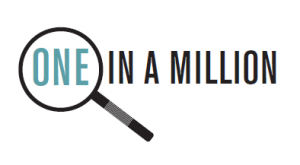 By Dr Rebecca Barnes
By Dr Rebecca Barnes
Senior Research Fellow
Centre for Academic Primary Care
Nearly 14 years ago in summer school at University of California Santa Barbara, Professor Don Zimmerman provided my introduction to the analysis of institutional, in particular medical, interaction.
Those studies set the benchmark for my own research ambitions but the main obstacle I faced was getting access to data.
For all the right reasons, medical consultations data are challenging to collect. Where ethical approval is in place for reuse it is often restricted to the original research team. Sometimes retrospective approvals for reuse of existing data are possible but even then, consultations data that has been collected without reuse in mind is often of variable quality; the process of data collection and participant characteristics are not well-documented, recordings can be incomplete and they are often audio-only.
The idea for the Primary Care Consultations Archive was born with this in mind. As I prepared the proposal, I immersed myself in past consultations research, in particular that of the late Professor Patrick Byrne Forty years ago. Byrne and his colleagues published a ground-breaking study, ‘Doctors talking to patients,’ based on an astounding 2114 consultations volunteered from 71 GPs. They reported that only 5% patients declined, and that there was little evidence that the presence of a recording device inhibited what was going on. Sadly these data were never archived.
I wanted to change this and create an archive accessible to researchers, with high-quality video and rich linked data. My colleagues and I received funding from the National Institute for Health Research, School for Primary Care Research, to create the One In a Million Archive – a unique resource of high quality video-recorded primary care consultations plus linked data.
Between July 2014 and April 2015, 334/421 unselected adult patients consulting with 23 GPs in 12 practices across the City of Bristol and the surrounding area generously consented to their consultations being recorded. Importantly, 89.8% (n=300) also consented to reuse by ‘other researchers, subject to specific ethical approval’. To optimize reuse potential, the dataset has been well documented and comprises both qualitative and quantitative data at the practice, GP, patient and visit level.
The archive is aimed at clinical and non-clinical academic researchers with an interest in primary care, for example:
- doctoral or post-doctoral fellows looking to work with consultations data to improve quality of care
- research initiation work prior to a larger grant application
- developing and testing methodological innovations such as interaction coding schemes to explore associations with consultation outcomes
- international comparative studies of primary care
- developing medical or research training materials
I know how much I would have appreciated this resource at the start of my own research journey and I hope it facilitates and inspires many future studies of conversations between patients and doctors, “the most important diagnostic and therapeutic tool in medicine” (Cassell 1985).
The archive is stored in the University of Bristol Research Data Repository. To protect the participants, access to the consultations data is controlled. Potential users must obtain approval from an NHS Research Ethics Committee, submit a data request, and agree to conditions of usage.
For more information please visit: http://www.bristol.ac.uk/one-in-a-million-study or contact the study team: one-in-a-million@bristol.ac.uk
References
Byrne PS, Long BEL. (1976) Doctors talking to patients: A study of the verbal behaviours of doctors in the consultation. London: Her Majesty’s Stationary Office.
Cassell E. (1985) Talking with patients: Vol. I The theory of doctor-patient communication. MIT Press, Cambridge, Massachusetts.
